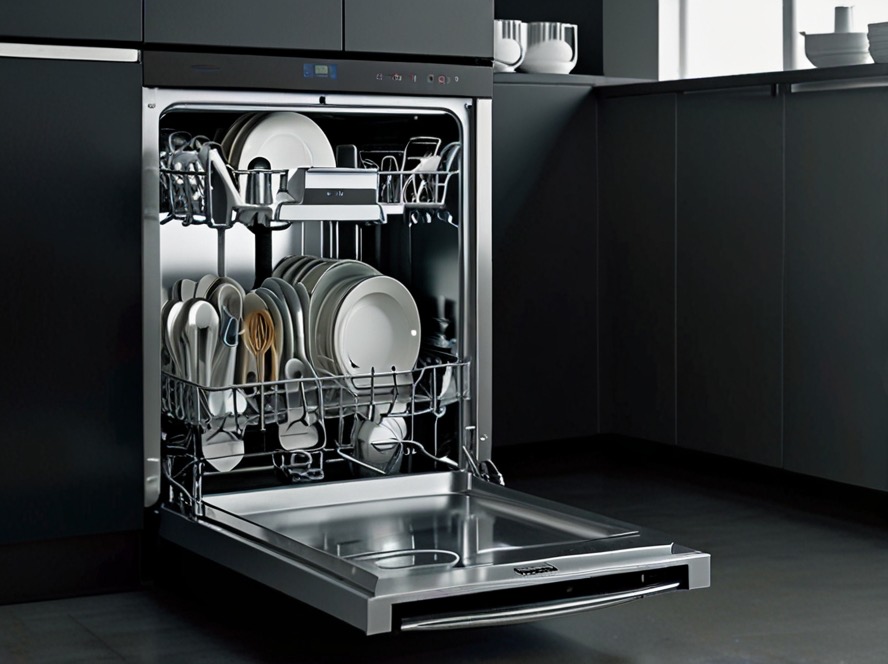Dishwashers have become indispensable in modern kitchens, offering convenience and efficiency. A critical aspect that determines their performance and reliability is the control system. The control system in a dishwasher manages the various cycles and functions, ensuring optimal cleaning while conserving energy and water. This article explores different types of control systems in dishwashers and their impact on reliability, performance, and overall user satisfaction.
Types of Control Systems
Dishwasher control systems can be broadly categorized into two types: mechanical and electronic. Each has its unique characteristics and implications for reliability.
Mechanical Control Systems: Mechanical controls are based on electromechanical timers and rotary dials. These systems use mechanical switches to manage different functions and cycles.
Advantages: Mechanical control systems are often praised for their durability and simplicity. They are less prone to electronic failures and can be easier to repair.
Disadvantages: The downside is their limited precision and flexibility. Mechanical controls can’t offer the same level of customization or sophisticated features as their electronic counterparts.
Electronic Control Systems: Electronic controls use digital interfaces and microprocessors to manage dishwasher operations. They offer touchpads or buttons, and sometimes even touchscreens, for user interaction.
Advantages: Electronic controls provide greater flexibility, allowing for more precise control over washing cycles and additional features such as sensors, delay starts, and energy-saving modes. They can also include smart technology integration, enabling remote operation via smartphones.
Disadvantages: Electronic systems are generally more complex and can be more susceptible to failures due to the higher number of components. They may require professional servicing when issues arise, which can be more costly.
Impact on Reliability
The reliability of a dishwasher is influenced significantly by the type of control system it employs. Here’s how mechanical and electronic systems stack up:
Durability and Longevity:
Mechanical Systems: Mechanical controls are renowned for their robustness. The fewer electronic components mean fewer points of failure. These systems can last longer and withstand harsher conditions, making them highly reliable over extended periods.
Electronic Systems: While electronic controls offer advanced functionalities, they involve more intricate components that can fail over time. The complexity of electronic systems can lead to issues such as software glitches, sensor failures, or problems with the digital interface.
Ease of Repair:
Mechanical Systems: Due to their simplicity, mechanical controls are typically easier and cheaper to repair. Many issues can be fixed with basic mechanical knowledge, reducing downtime and repair costs.
Electronic Systems: Repairing electronic controls often requires specialized knowledge and tools. Diagnosis can be more complicated, and repairs or replacements tend to be more expensive, impacting overall reliability.
Performance Consistency:
Mechanical Systems: Mechanical systems, while durable, might not offer the same level of performance consistency, particularly in maintaining precise temperature and timing. This can affect the cleaning efficiency and energy usage.
Electronic Systems: Electronic controls can maintain more consistent performance due to precise programming. They can adapt to various load sizes and soil levels more effectively, enhancing cleaning efficiency and reducing resource consumption.
Advanced Features and Their Impact
Electronic control systems enable a range of advanced features that mechanical systems cannot provide. These features significantly impact the user experience and the perceived reliability of the dishwasher.
Sensor Technology: Sensors in electronic dishwashers can detect the turbidity (cloudiness) of the water, the level of soil on dishes, and adjust the cycle accordingly. This adaptability enhances cleaning performance and can extend the life of the dishwasher by reducing wear and tear from unnecessary long cycles.
Smart Connectivity: Some modern dishwashers feature Wi-Fi connectivity, allowing users to control and monitor their appliance remotely via a smartphone app. While adding convenience, smart features also introduce new potential failure points related to connectivity and software issues. However, manufacturers often provide regular updates to improve functionality and reliability.
Energy and Water Efficiency: Electronic controls can optimize water and energy usage by adjusting cycles based on the load size and soil level. This efficiency not only reduces utility bills but also contributes to the appliance’s overall reliability by preventing excessive strain on components.
Choosing the Right Control System
When selecting a dishwasher, the choice between mechanical and electronic controls depends on the user’s priorities:
For Durability and Simplicity: Mechanical controls are ideal for those who prioritize long-term reliability and ease of repair. They are particularly suitable for users in areas with frequent power surges or less access to professional repair services.
For Advanced Functionality and Efficiency: Electronic controls are best for users who value convenience, customization, and advanced features. They offer superior cleaning performance and energy efficiency but may require more maintenance and professional servicing.
The control system in a dishwasher plays a crucial role in its reliability and performance. While mechanical control systems offer simplicity and durability, electronic control systems provide advanced features and greater efficiency. Understanding the strengths and weaknesses of each type can help consumers make informed decisions based on their needs and preferences. Ultimately, both systems have their place in modern kitchens, and the right choice depends on balancing durability with desired functionality.
If you’re having a problem with a home appliance, the best option is to contact us at HOME APPLIANCE SERVICE CENTER – the leading Repair Service Provider in San Diego. Our superior performance, accuracy, knowledge and experience make us the top choice for your repair needs. Plus, our friendly attitude and free maintenance consultation make us even more appealing. And, our after-service warranty is unbeatable. We’re open 24/7, including weekends and holidays, and in emergencies, an engineer will arrive at your door within 15 minutes of your call. So, don’t hesitate – give us a call, and HOME APPLIANCE SERVICE CENTER will solve any problem.
Contact us
 619-928-5000
619-928-5000  Request Service
Request Service 
